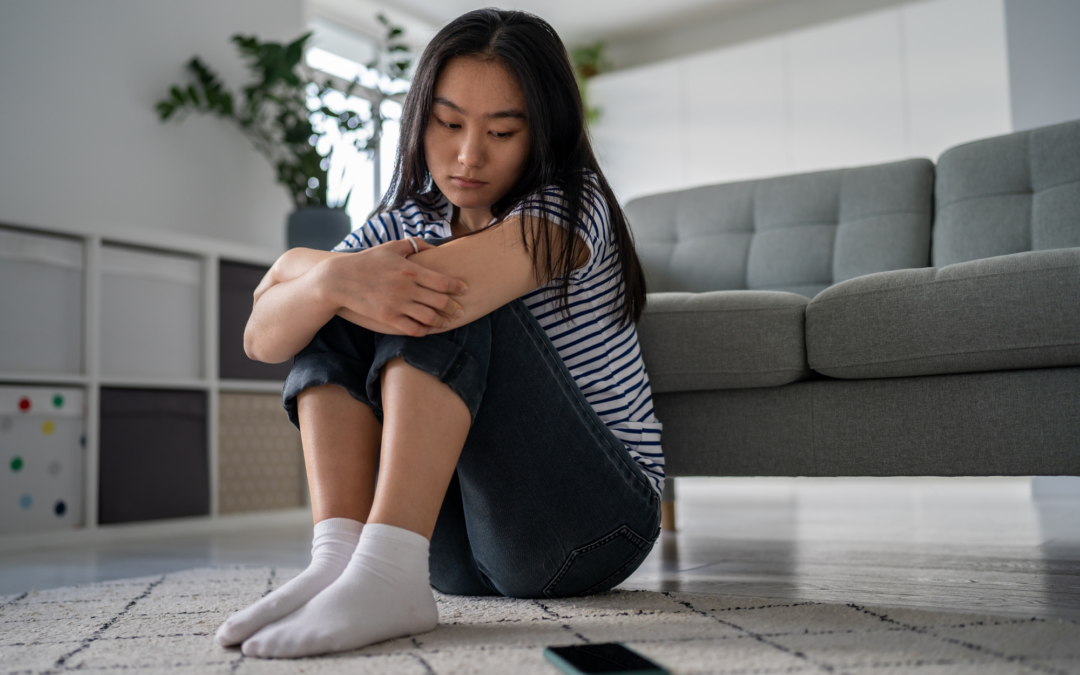Picture yourself sitting on your couch on a Saturday night, snuggled under your favourite blanket with a movie and a bowl of popcorn. You’re perfectly content, that is, until you open the Instagram app. Before you know it, you’re scrolling through endless pictures and stories of people’s big Saturday night plans. You’re seeing pictures from house parties, videos of concerts, and stories of friends having movie nights together. You suddenly get a pit in your stomach and are no longer excited about your solo Saturday night in.
FOMO
FOMO, or Fear of Missing Out, is the “fear of not being included in something (such as an interesting or enjoyable activity) that others are experiencing”. One study that surveyed college-aged students found that ¾ reported experiencing FOMO. It’s not an uncommon feeling. Aside from the bad feeling it gives us, FOMO has been linked to reduced productivity, poorer sleep, social anxiety, and overall poorer health outcomes.
It is important to remember, however, that FOMO is made significantly worse by social media use. In the scenario above, you were perfectly content, in fact excited, about a Saturday night in. It wasn’t until you checked Instagram that your feelings completely shifted. During pre-social media days, there was no way of knowing what people were up to in the moment unless they had told you their plans previously. You would have been left to enjoy your night in without the live-updates of all the ways you’re “missing out”.
When you’re experiencing FOMO, it’s important to shift your perspective to the point of view of the poster. You may have heard the saying “pics or it didn’t happen”. Social media has made people obsessed with sharing their lives online, and they couldn’t imagine having fun plans without letting all their followers know what they’re up to. It can be argued, however, that the most fun is had when phones are tucked away and people are living in the moment, rather than worrying about impressing their followers. It may be helpful to remind yourself that you too were having a fun night until FOMO made you feel otherwise.
Another thing to remember is people’s tendencies to post the highlights reel of their life. Sure, you may be seeing Instagram posts of what looks like a really fun night. But you have fun nights too! Tonight just happens to be a chill night for you. The person whose posts you’re looking at may very likely have done nothing last night, you just didn’t know because they didn’t post about it. It’s human nature to make social comparisons, but remember that what you see on social media is not an accurate representation of how people are actually doing in their day-to-day life. Next time you’re having a night to yourself, it may be a good idea to put your phone away and not expose yourself to how social media will make you feel.
Another thing to remember is all the times you have spent a fun Saturday night with friends. It can be helpful to remember that you’re fully capable of having fun plans but that it isn’t normal (or healthy) to not be able to spend time alone. In fact, learning to enjoy spending time alone is amazing for your mental health and self-love.
FOMO is a perfectly normal feeling that most people experience. While you may be spending this Saturday night alone, you are not the only one! It’s important to make the most of your solo nights and to proactively avoid things that will make you feel like you are not enough, because you are.
In summary, when you’re experiencing FOMO, it’s a good idea to turn your phone off, remember fun nights that you have had in the past, and try to focus on being in the present moment. If you feel that FOMO is actively interfering with your life and contributing to depression, anxiety, or eating disorders, give us a call to talk.
Need a little extra help? Check out Uprise Psychology & Wellness’ therapists here!
References:
Festinger, L. (1954). A theory of social comparison processes. Human relations, 7(2), 117-140.
Gupta, M., & Sharma, A. (2021). Fear of missing out: A brief overview of origin, theoretical underpinnings and relationship with mental health. World Journal of Clinical Cases, 9(19), 4881.
Merriam-Webster. (n.d.) FOMO. In Merriam-Webster.com dictionary. Retrieved May 10, 2023, from https://www.merriam-webster.com/dictionary/FOMO
Przybylski, A. K., Murayama, K., DeHaan, C. R., & Gladwell, V. (2013). Motivational, emotional, and behavioral correlates of fear of missing out. Computers in Human Behavior, 29(4), 1841-1848.

About the Author:
Gabriella Hilkes is a Social Media Intern at Uprise Psychology & Wellness. She is currently a Masters student in Experimental Psychology at Carleton University and plans to continue her education in the field of Counselling Psychology afterwards. Gabriella works hard at maintaining a work-life balance and integrate mindfulness and self-care practices daily.
